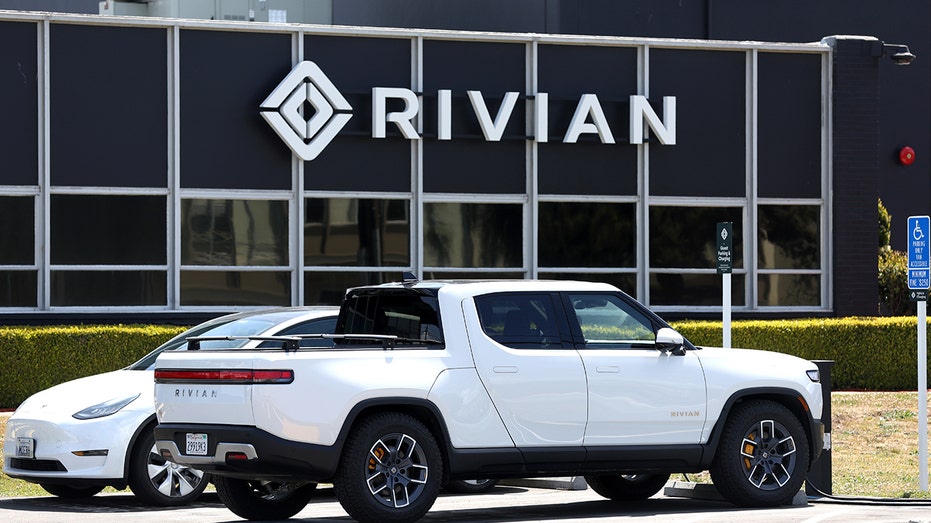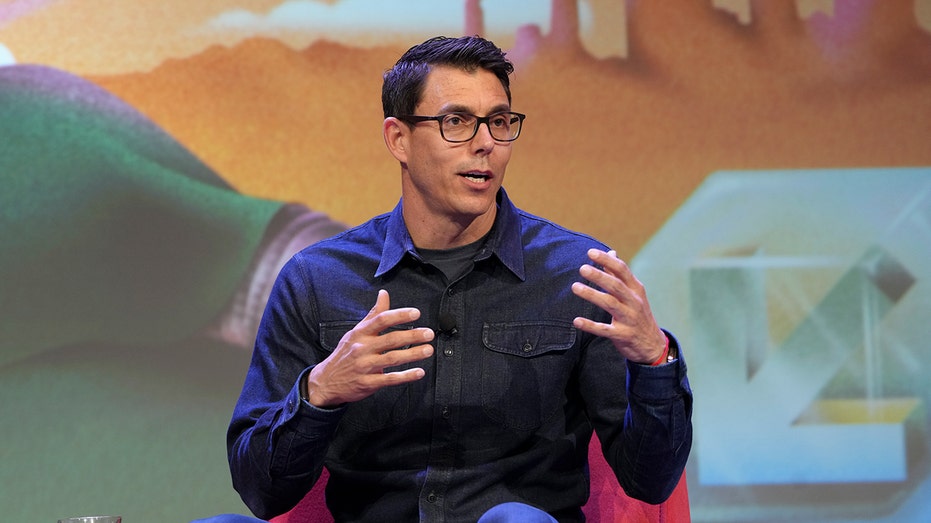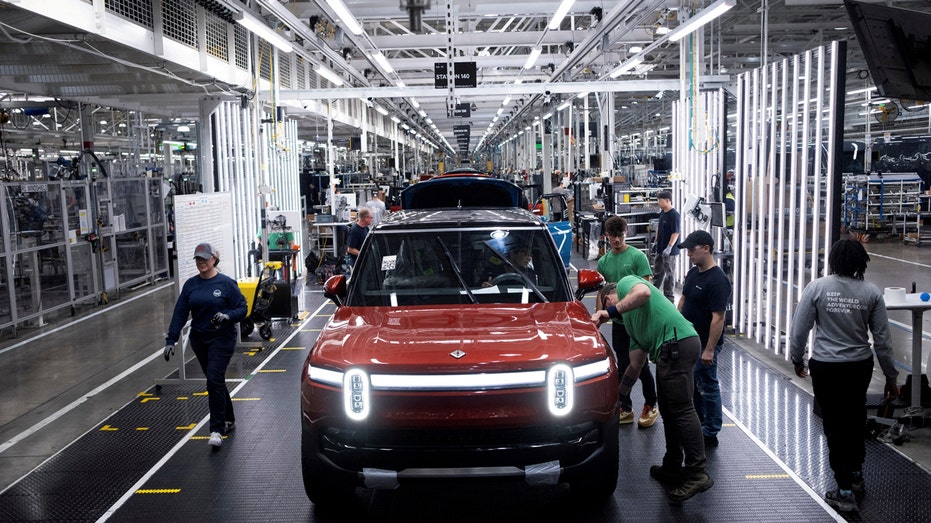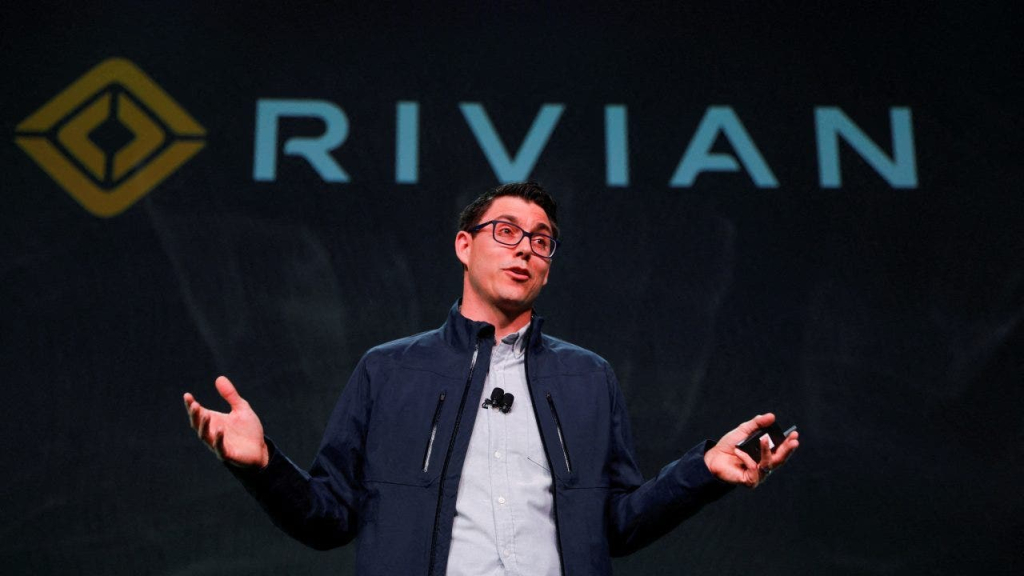Rivian’s founder and CEO, RJ Scaringe, addressed the implications of the Trump administration’s tariffs on electric vehicle production during an interview on “The Claman Countdown” on Tuesday.
During the discussion with host Liz Claman, Scaringe acknowledged that consumers are concerned about the potential impacts on vehicle pricing and availability in the U.S. due to the tariffs. He emphasized that Rivian is working thoughtfully to address these challenges.
Last month, President Trump announced a 25% tariff on imported passenger vehicles, light trucks, and certain essential auto parts. This move is part of a broader strategy that includes tariffs on steel, aluminum, and reciprocal tariffs, all of which have heightened scrutiny on imported goods.
SEE IT:RIVIAN UNVEILS REDESIGNED ALL-ELECTRIC SUV AND PICKUP

Scaringe noted that Rivian’s electric vehicles, including the newly unveiled second-generation R1S, are produced at the company’s facility in Normal, Illinois. He remarked, “We’ve been very focused on building out our supply chain, of course, our production footprint here in the U.S. and, of course, all the technology is developed here as well.”
When asked about the origins of Rivian’s steel and aluminum supplies, Scaringe mentioned that the sources are varied. “The automotive supply chain is so complex, involving hundreds of suppliers that provide components ranging from headlights to structure under the vehicle,” he explained, highlighting the multi-tiered nature of supply chains that often involve global contributions.
RIVIAN ANNOUNCES TWO NEW EV SUV LINES, INCLUDING ONE SURPRISE
While Scaringe acknowledged the challenges presented by Trump’s tariffs, he emphasized that Rivian has established a predominantly U.S.-focused supply chain. “We build the big pieces all here,” he said, pointing to components like motors and batteries that are made domestically. However, he also recognized that many parts still rely on international suppliers.

Additionally, Scaringe highlighted the ongoing development of Rivian’s plant in Illinois in response to questions about potential communications with the White House regarding manufacturing incentives linked to tariffs. He remarked that all automakers are affected by the 25% tariff, which adds complexity to supply chain dynamics, especially given recent restrictions on rare earth metals from China, which pose a challenge for the electric vehicle sector.
China’s recent export restrictions on certain rare earth metals could have significant implications for electric vehicle manufacturers, given that these materials are critical for motor production. Scaringe pointed out that while such rare-earth metals can be sourced from multiple countries globally, the processing of these materials largely occurs in China.

CLICK HERE TO GET Finance Newso BUSINESS ON THE GO
Scaringe described how electric vehicles universally utilize permanent magnet motors, which often depend on rare earth metals. While these materials are found in various locations worldwide, the processing is predominantly done in China.
The Rivian CEO also shared insights into the broader electric vehicle market, pointing out the need for increased diversity in vehicle options to accelerate market growth. With electric vehicles accounting for only 8.1% of U.S. vehicle sales in 2024, he emphasized the importance of offering more compelling choices to consumers.
“A huge part of this is giving customers choice,” Scaringe remarked, citing the limited options available for electric vehicles priced under $50,000. The dominance of Tesla, which holds over 50% of the market share, reflects this issue, indicating that expanding choices in form and design is essential for the sector’s growth.
| Ticker | Security | Last | Change | Change % |
|---|---|---|---|---|
| RIVN | RIVIAN AUTOMOTIVE INC. | 11.91 | -0.12 | -1.00% |
To boost the market share of electric vehicles, Scaringe called for a variety of features, brands, and styles, urging the industry to enhance aesthetic appeal and functionality. Currently, Rivian produces the R1S SUV, the R1T pickup truck, and commercial electric vans, with plans to introduce additional models, R2 and R3, in the near future.


























